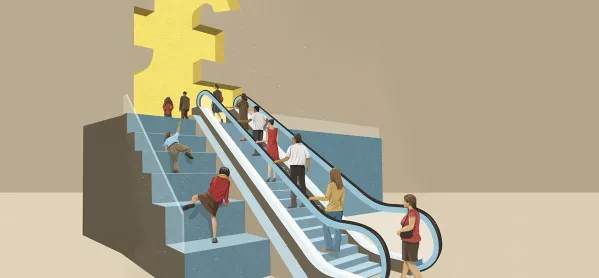- Home
- Differential pay won’t make teaching great again
Differential pay won’t make teaching great again

“There are no great schools without great teachers.” So proclaims education secretary Damian Hinds. But there’s a teacher shortage.
We’ve been saying it for years, decades even: now the Education Policy Institute reports that maths and physics are being taught up and down the country (mostly outside London) by people who haven’t got a degree in them.
Of course, responding to a Times report on Thursday, the Department for Education issued its usual bland, robotic half-acknowledgement (and, inevitably, half-denial), quoting Mr Hinds’ dictum and reminding us that his “top priority is to make sure teaching remains an attractive and fulfilling profession”. No mention of how.
The EPI (Education Policy Institute) proposes paying more to teachers in shortage subjects. I’m unconvinced. The past few years have seen golden hellos offered, tuition fees waived and other wheezes tried: yet the crisis persists.
Perhaps the commercial world can indeed attract talent by accepting the reality of the market and paying more where shortages occur. But teachers don’t expect to get rich, and research demonstrates time after time that the decision to teach – or not – is not about money. Teachers are certainly driven by a sense of vocation: so why do too many who might go into teaching decide not to? Or leave soon after?
There are many answers, all of them partial. One lies in recent debates about exam malpractice, schools off-rolling pupils and other dirty tricks employed to improve exam results. An ex-headteacher myself (ex for just a few days), and appreciating the pressures they feel, I can understand why some school leaders succumb to such temptations, though I can’t excuse them.
Understandably, other viewpoints condemn such heads, believing that they should find the moral strength to withstand both pressure and temptation.
Arguments on both sides serve to illustrate the pressure in the system, in itself another answer. Great headteachers absorb pressure, trust their staff as professionals and thus grow great teachers and get great results. But where the pressure is transmitted downward, teachers feel it and suffer the resulting workload.
Media messages may deter would-be teachers. How often do you read anything that would encourage them? The same (Thursday) edition of The Times that reported “half of maths and physics teachers quit in five years” included other education-related headlines: a proposed government ban on children buying energy drinks (hyperactivity and behaviour issues); girls put off careers in science by books telling them that space will ruin their hair (arguably a silly-season story); pupils aged five sent to a Pupil Referral Unit where a boy was stabbed; and, on the same page, repulsively, “one child in every classroom has received a naked image online”.
I know. Many other professions would similarly complain that only bad news makes headlines about them. But when the DfE and the Inspectorate fall out about the very nature of accountability through inspection; when even the education secretary fears Ofsted’s proposals for more qualitative judgement of schools risks increasing workload (which it does, on past form); when that same minister glibly claims that technology will reduce workload (we’ve heard it so many times…); and when his department’s two-page priorities document fails to mention producing altruistic, generous, creative adults prepared to play their part in society…
Add all these things up, and it’s small wonder that working in education appears, in the end, a less-than-attractive career choice for many.
Fortunately, many people of all ages still feel that vocation and, notwithstanding government pressure, insensitivity, interference and parsimony, they view teaching as a job they must do.
But there aren’t enough of them: and no quick fix, not even a backhander for mathematicians, will put that right.
Great teachers, like great schools, need vision, strategic planning and generous resources from government, not utilitarianism, micromanagement, tinkering and headline-grabbing.
To misquote a Trumpian mantra: “Let’s make teaching great again.” Trouble is, I can’t see anyone in Westminster about to do it.
Dr Bernard Trafford is a writer, educationalist and musician. He is a former headteacher of the Royal Grammar School, Newcastle, and past chair of HMC. He tweets @bernardtrafford
Keep reading for just £1 per month
You've reached your limit of free articles this month. Subscribe for £1 per month for three months and get:
- Unlimited access to all Tes magazine content
- Exclusive subscriber-only stories
- Award-winning email newsletters



